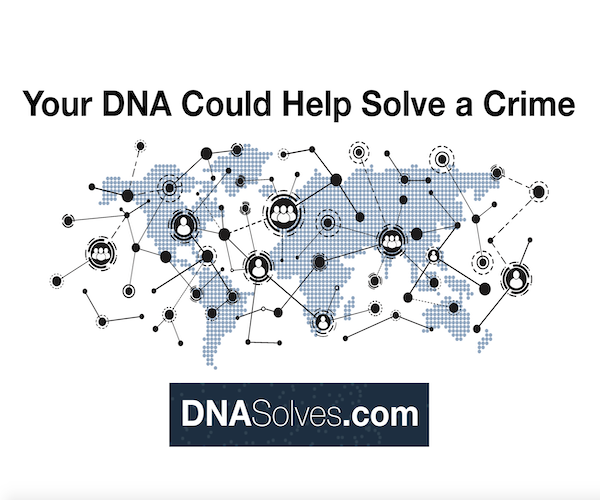This year’s meeting was in every way very much what was expected: a great set of science talks, a never ending networking event, and last but not least a product launch point. Instead of summarizing what has been written up by many other great writers and bloggers on a daily basis, here just a few highlights accompanied by the announcements that went hand-in-hand with this event. For convenience purpose, and to have it all in one place, I listed the different blog posts reflecting on AGBT 2015.
A great resource of the different AGBT activities and highlights can be found in the following blog posts written by Genohub, Pacific Biosciences, Golden Helix, DeciBio bloggers, Bio-IT World, and NextGeneSeq Report.
Genohub
Pacific Biosciences
- AGBT Highlights, Day One: Advancing Human Reference Assembly & Sequencing in the Clinic
- AGBT 2015: PacBio Workshop Review & Recording
- AGBT Highlights, Day Three: Genomic Medicine, Population Specific Genomes, Goats & Influenza
Golden Helix
- AGBT 2015: Highlights of Another Great Year: the image to the right (Image credit: DeciBio) summarizes the responses of 22 AGBT attendees when asked what they remember the most of this year’s conference.
NextGenSeq Report
Bio-IT World
The various talks offered were of a large variety, and included a range of different applications of next-generation sequencing technologies, spanning the full spectrum from clinical sequencing to epigenetics and to microbiome studies. Listed here some of my personal highlights (1) Evan Eichler offered an in-depth look into the human genome projects; (2) Eric Green provided a nice overview of the Precision Medicine Initiative; (3) Stephen Kingsmore captivated the audience with his talk on rapid genome sequencing for genetic disease diagnostic in neonatal intensive care units; (4) Christian Matranga described the clinical sequencing of viral genomes as important to understanding the evolution and transmission of the pathogen and the ability to inform on surveillance and therapeutic development;(5) Euan Ashley (Stanford Healthcare) announced that clinical grade whole genome sequencing is already implemented in the clinic; (6) Rob Knight (UCSD) gave an excellent talk on the complexity of the gut microbiome.
This year’s meeting featured clinical translation of next generation DNA sequencing technologies and pipeline announcements. Here below a list of the major announcements coinciding with the conference:
- Fluidigm debuts newest single-cell system, Polaris™, a single-cell research system integrates cell selection, isolation, dose, culture and molecular preparation into a single workflow, thereby enabling researchers to directly correlate gene expression with environmental conditions and phenotypic information. This new workflow allows researchers to conduct dose-response and time course studies on live, single cells to identify interesting genes that regulate critical pathways, as well as to better evaluate the diversity of biological effects across cell types.
- Illumina Launches the NeoPrep Library Prep System, a library preparation system that delivers high-quality sequencing-ready libraries for next-generation sequencing (NGS). This newest addition to the Illumina portfolio of NGS solutions consists of a NeoPrep desktop instrument, disposable library cards, and reagents. Together with Illumina sequencers and the BaseSpace® computing environment, the new system plays an integral role in providing NGS users with an efficient and wholesome workflow.
- Maverix Biomics Complete Provides End-To-End NGS Solution: The new Maverix Complete offering – which integrates Beckman Coulter Genomics Sequencing with data analysis kits provided by Maverix Biomics – is designed to streamline NGS endeavors by providing customers with a single source solution that begins with a biological sample, and delivers meaningful insight and results by integrating industry leading library preparation and next generation sequencing services with the Maverix Analytic Platform for data analysis. Maverix now also provides data analysis services for selected Beckman Coulter Genomics customers.
- 10X Genomics launches at AGBT: 10X Genomics, unveiled a full commercial version of its new technology. In the Friday afternoon bronze sponsor workshop – Ben Hindson provided a detailed overview of their long range sequencing technology. The package includes the GemCode platform with its own software ($75K, to be shipped this year) and will cost $500 per sample. The launch was accompanied by a very well received movie that is definitely worth seeing.
- Kapa Biosystems launches DNA and RNA sample preparation products: The new sample preparation products, the KAPA HyperPlus Kit and the KAPA Stranded RNA-Seq Kit with RiboErase, incorporate DNA fragmentation, library preparation, and rRNA removal via streamlined single-tube workflows. This allows researchers to achieve a tunable, reproducible and robust fragmentation profile across a broad range of DNA inputs (1 ng – 1 µg) and sample types, including challenging FFPE tissue. The integrated workflow significantly increases library construction efficiencies, resulting in lower duplication rates, increased library diversity, and more uniform sequencing coverage.
- Station X simplifies use of the Cancer Genome Atlas via integration with Its GenePool platform: Researchers can now utilize the open-access content of the TCGA in a secure and curated cloud-based environment. The TCGA datasets, now available within GenePool, includes the genomic profiles of more than 10,000 patients and 27 cancer types, and all of the patient and sample metadata curated by Station X, making high-quality data mining possible.
- Beckman Coulter Genomics introduces a scalable RNA-seq service line for processing intact and degraded RNA samples: Beckman Coulter Genomics, provider of expert sequencing solutions for research and healthcare institutions, has added stranded, ribodepletion and globin reduction library construction options to their existing RNA-Seq services. The Illumina TruSeq Stranded Total RNA Sample Prep Kit has been automated on Beckman Coulter instruments to enable scalability and LIMS sample tracking. This expanded offering has been validated at Beckman Coulter Genomics for human, mouse, rat and plant samples. In addition, it includes the ability to work with samples derived from blood and FFPE.
- DNAnexus enables seamless assembly of PacBio data for J. Craig Venter genome: DNAnexus now offers whole genome assembly using long read sequencing data generated by the PacBio RS II. To demonstrate the new capability, DNAnexus and PacBio researchers used Daligner written by Gene Myers and PacBio’s FALCON genome assembler to perform de novo genome assembly of the complete genome of J. Craig Venter, a pioneer in genome sequencing, on the DNAnexus cloud platform.
Some other news releases, not directly associated with AGBT, but released within the same time frame and of relevance to the same audience
- Illumina (ILMN) Accelerator Unit receives $40M commitment from Viking Global: Illumina Accelerator Boost Capital will provide dollar-for-dollar match funding to every Illumina Accelerator graduate company that raises any amount between $1 million and $5 million in new capital during the funding cycle. Illumina Accelerator is the world’s first business accelerator focused solely on creating an innovation ecosystem for the genomics industry. It provides select startups with seed investment, business guidance, access to Illumina’s sequencing systems and reagents, and fully operational lab space in the San Francisco Bay Area during each six-month funding cycle.
- Foundation Medicine Announces 2014 Fourth Quarter and Year-End Results, Recent Highlights and 2015 Outlook: Highlights for the quarter and year included:
- 7,233 clinical tests reported in the fourth quarter — 93% year-over-year growth
- 24,271 clinical tests reported in 2014 — 167% annual growth
- FoundationCORE™, Foundation Medicine’s knowledgebase of genomic data, grew to approximately 35,000 clinical cases
- Launched ICE 2™, the latest version of the company’s Interactive Cancer Explorer®, including a new feature called PatientMatch™
- The company expects to report between 43,000 and 47,000 clinical tests in 2015.
- The company expects to launch a cell-free DNA test in 2015.
- Roche to Advance Translational Research for Next Generation Sequencing (NGS) Diagnostics: Roche announced the acquisition of Signature Diagnostics AG (Signature), a privately held company based in Potsdam, Germany. Signature is a translational oncology and genomics company that develops large blood plasma and tissue biobanks in multiple cancers, including colorectal and lung, which are constructed from multicenter prospective clinical studies. Signature uses the samples from its biobanks along with accompanying clinical progression and genetic data to develop and validate circulating cell free DNA (cfDNA) tests which have the potential to advance non-invasive treatment response monitoring for patients with cancer. Signature will be integrated into the Roche Sequencing Unit.











